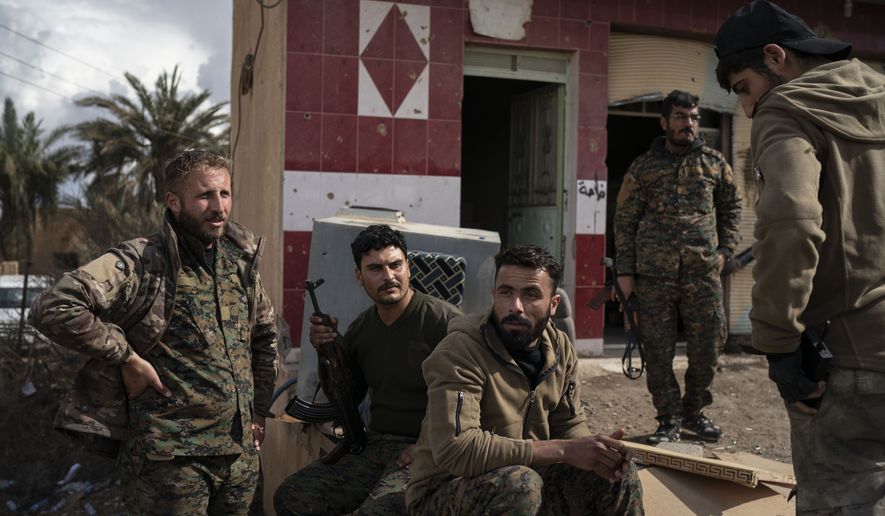The United States should keep providing weapons and military support for the American-backed Arab and Kurdish forces fighting the Islamic State, even after the terror group loses its safe havens in Syria, the top U.S. officer in the region says.
Gen. Joseph Votel, head of U.S. Central Command, is recommending Washington stay the course in its military support of the predominantly Kurdish outfits known as the Syrian Democratic Forces or SDF, which have battled Islamic State fighters on the ground.
“As long as they are fighting against ISIS and continue to keep pressure on them, I think it would seem to me to be in our interest to continue to provide the means for them to do that,” the four-star general told Reuters on Sunday, during his final diplomatic visit to the Middle East as Central Command chief.
His comments come as the Trump administration continues to press ahead with plans to pull out the roughly 2,000 American service members in Syria over the next few months. U.S. officials say the forces, the majority of which are serving as military advisers to the SDF, have been critical to rolling back ISIS’ territorial holds in Syria and northern Iraq.
Recent days have seen the SDF, backed by U.S. airpower and American special operations advisers, move closer to liberating the last of the Islamic State’s territory in Syria — a sliver of ground near the eastern Syrian city of Deir-e-Zour.
While Gen. Votel has recommended sustained U.S. support for the SDF against the terror group, other U.S. commanders have indicated that such support could still be pulled back in the future.
Army Lt. Gen. Paul LaCamera, the top U.S. officer leading the wider anti-ISIS coalition of nations, warned over the weekend that if elements of the SDF break away from the American-backed coalition and ally themselves with Syrian forces loyal to President Bashar Assad, they would be cut off from the U.S. support.
“We will continue to train and arm them as long as they remain our partners,” Gen. LaCamera told reporters traveling with Gen. Votel, during a visit to coalition-controlled territory in Syria.
“Once that relationship is severed, because they go back to the regime … then we will no longer be partners with them,” he added.
Some Kurdish members of the SDF have publicly considered breaking with the U.S.-led coalition and allying with the Assad regime over fears American commanders would not back them if Turkey were to launch a new offensive against Kurdish militias in northern Syria.
During the height of the war against Islamic State, U.S. commanders backed a number of Kurdish militias under the SDF, including some that Ankara deemed terrorist organizations.
Gen. Votel, meanwhile, warned that the American mission in Syria would likely grow more intense, not less, as Islamic State moves away from its territorial ambitions and reverts back to its terrorist roots. With the group’s so-called caliphate in tatters, he suggested that SDF fighters and other local security forces will require additional U.S. military assistance to guard against an Islamic State resurgence.
“When they go to a kind of a wider area security mode, then that will drive a different type of requirement” for military support from U.S. forces, Gen. Votel told reporters over the weekend while en route to Oman.
The outgoing Central Command chief has publicly pushed back against the White House’s decision to disengage in Syria, a rare move for the military’s top brass, which traditionally shies away from commenting on administration policy.
Gen. Votel told CNN on Friday that he would have recommended against the decision for a complete withdrawal from Syria. “It would not have been my military advice at that particular time,” he said.
Gen. Votel also told Congress earlier this month that he and his staff had not been consulted by the White House before Mr. Trump’s announcement of the Syria troop withdrawal.
• Carlo Muñoz can be reached at cmunoz@washingtontimes.com.




Please read our comment policy before commenting.